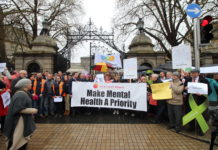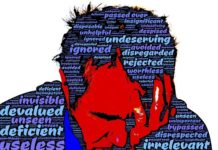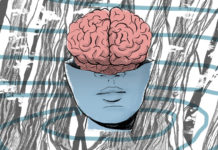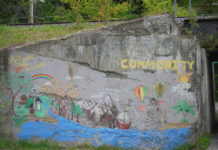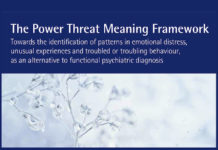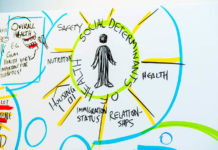How to Integrate Culture into Mental Health Care
Researchers explore how culturally responsive services can create greater equity in mental health care.
Study Finds Improved Functioning for ‘Schizophrenia’ Without Antipsychotics
Long-term treatment with antipsychotic drugs is currently considered the standard treatment for patients diagnosed with ‘schizophrenia.’ A new study challenges this practice, however. The...
Psychosocial Explanations of Psychosis Reduce Stigma, Study Finds
A review of mental health anti-stigma campaigns finds psychosocial models are effective in reducing stigma, while biogenetic models often worsen attitudes.
Sense of Purpose Reduces Negative Effects of Social Media Use
New research shows that having a strong sense of personal meaning and purpose can reduce the negative effects of social media use.
New Study Examines User Experience of Discontinuing Psychiatric Medications
Researchers find that support and self-care were helpful for users during discontinuation, but that mental health professionals were not very helpful.
Peer Support in Mental Health: Exploitive, Transformative, or Both?
The first time I tried to write about peer support—that emerging form of “service delivery” in which one person in recovery from what is described in the field as a “serious mental illness” offers support to another person who is in distress or struggling with a mental health condition—was in 1994. The manuscript was summarily rejected from an academic journal as representing what one of the reviewers described as “unsubstantiated rot.” That same article was eventually published 5 years later, and used by the President’s New Freedom Commission on Mental Health to support its recommendation that peer supports be implemented across the country. Now, more than a decade later and as peer support arrives at something of a crossroads, both of these reactions remain instructive.
Constructing Alternatives to the DSM: An Interview with Dr. Jonathan Raskin
Dr. Raskin discusses psychotherapists’ dissatisfaction with current psychiatric diagnostic systems and explores alternatives.
Correcting Misconceptions of Trauma-informed Care with Survivor Perspectives
Trauma-informed approaches have the potential to promote recovery but must involve survivors and service-users to prevent the experience of retraumatization within psychiatric and mental health services.
How to Promote Community Inclusion in Mental Health Practice
Practitioners and public leaders identify methods and barriers for integrating those diagnosed with mental health issues into community life.
The Power Threat Meaning Framework One Year On
The team that developed the Power Threat Meaning framework as a diagnostic alternative reflects on the response to the framework after one year.
Lay Health Worker Intervention Effective at Decreasing Symptoms
Compared with standard care, results of a lay health worker intervention in Zimbabwe suggest that this is effective for reduction of common mental health symptoms
Childhood Adversity May Increase Risk of Suicide
Swedish study suggests experiencing adversity in childhood is linked to dying by suicide as an adolescent or young adult.
Landmark Schizophrenia Study Recommends More Therapy
Results of a large government-funded study call into question current drug heavy approaches to treating people diagnosed with schizophrenia. The study, which the New York Times called “by far the most rigorous trial to date conducted in the United States,” found that patients who received smaller doses of antipsychotic drugs with individual talk therapy, family training, and support for employment and education had a greater reduction in symptoms as well as increases in quality of life, and participation in work and school than those receiving the current standard of care.
Confusion Over Antipsychotic Dosing Data in RAISE Study
Yesterday, the New York Times reported that schizophrenia patients in an experimental treatment program (RAISE) who experienced better outcomes had been on lower doses of antipsychotics than normal. However, the article published in the American Journal of Psychiatry on Tuesday did not divulge any data on the varying antipsychotic drug doses in the different study groups.
Social Inclusion and Stipend Enhance Recovery, Study Suggests
A new study explores the benefits of a befriending program in the recovery of those with “enduring mental illness.”
Researchers Present Structural Competency Training Model for Psychiatrists
Researchers argue that a structural competency and social determinants of health approach must be made central to psychiatry training.
Peer Supports Under Siege: A Call for Help and Solidarity (And how this...
We need all of our voices to come together to challenge that sort of power in order to have any sort of hope at all. To the best of my knowledge, the majority of people who hang around these ‘Mad in America’ parts are particularly interested in prioritizing, promoting, and creating access to (true) alternatives, including those built upon peer-to-peer supports. But, whenever one of us falls, it becomes that much easier to knock the next one down. We need more examples to point to, not less; more places to reference and say, “If they can do it, why can’t we?”; more places to call upon and say, “If you don’t believe us, how about them… or them… or them?”
Exercise Effective for Early Psychosis, Studies Show
A new study out of the University of Manchester found that personalized exercise programs reduced the symptoms for young people suffering from their first episode of psychosis. Researchers also conducted an accompanying qualitative analysis and found that the participants experienced improved mental health, confidence, and a sense of achievement and felt that autonomy and social support were critical to their success.
The Effect of Psychiatric Diagnosis on Young People’s Sense of Self and Social Identity
A new review highlights the effects that psychiatric diagnosis has on children and adolescents’ social relationships and views of self.
Review Reinforces Social Connection as Protective Health Factor
Is a lack of social connection in the US harmful to health? In a review of social connection and health literature, researcher calls for a societal shift in values towards interdependence.
Emotional Child Abuse Just as Harmful as Physical Abuse
Different types of child abuse have equivalent psychological effects, according to a study in JAMA Psychiatry. It has previously been assumed that emotional and verbal abuse could have different or less harmful impact on a child’s psychology than physical or sexual abuse, but research now suggests that these forms of abuse can be just as damaging.
REFOCUS Psychosis Recovery Intervention Ready for Trials
A new pro-recovery manualized intervention – called the REFOCUS intervention – has been developed and will now be evaluated in a multisite randomized control trials. The strengths-based intervention, which focuses on promoting relationships, is outlined in the latest issue of the British Journal of Psychiatry.
Family Oriented, Home-Based Treatment Best for Youth with Symptoms of Psychosis
A pathbreaking new study out of Finland suggests that early intervention programs for youth experiencing psychotic-like symptoms may see the greatest improvement when treatment works within the home rather than in a hospital setting. The research, to be published in next month’s issue of Psychiatry Research, found greater improvement in functioning, depression, and hopelessness among teens in a new need-adapted Family and Community oriented Integrative Treatment Model (FCTM) program.
The Never Ending Story: How 2nd Story Respite House Was Saved
We had built relationships with provider and peer organizations and NAMI. We had learned how to interface with the system and share the peer perspective. Ultimately, our relationships saved us. We had worked to start our own organization with the same providers who now were in position to step forward in our defense.
Pets Play Central Role in Management of Mental Health Problems
Individuals with long-term mental health conditions identify pets as valuable supports in their daily lives.

